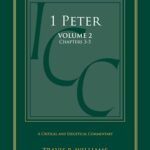Financial Advice from a Dead Guy
In recent months, I’ve written about marriage and parenting advice “from a dead guy” (i.e., John Chrysostom, c. 347–407). In this post, I’m going to note a few comments about wealth and poverty from this same church father.
Almost every substantial discussion of John Chrysostom’s ministry points out that one of the major themes of his preaching was a proper view of money and possessions. In fact, Aideen Hartley went so far as to claim that “concern with wealth was the great theme of all Chrysostom’s preaching” (John Chrysostom and the Transformation of the City, 44).
On the surface, Chrysostom appeared at times to have been critical of wealth itself. For example, he described those who are rich as having committed theft by withholding what was due to the poor, and he spoke of luxury as being grievous (Chrysostom, On Wealth and Poverty, 26, 49, 55). On the other hand, he also admitted that wealth is not inherently evil. What matters is how one uses what he or she has been given by God (Against Publishing the Errors of the Brethren, NPNF1 9:236).
In early 388 or 389, Chrysostom preached a series of messages on the rich man and Lazarus. In these messages he compared wealth and poverty in this current life to masks. A fourth-century actor might pretend to be a wealthy king on the stage, but after leaving the stage, he removes his crown and is shown to be a tradesman or some other subject of the king (On Wealth and Poverty, 46–47). Even so, one might appear wealthy in this life, but the reality will be revealed in the next. True wealth is found in contentment and generosity, not in an abundance of possessions. As Chrysostom put it, “The rich man is not one who is in possession of much, but one who gives much” (Homilies Concerning the Statues, NPNF1 9:349).
In keeping with this, Chrysostom warned of the dangers of wealth. He argued that the love of money corrupts and that wealth is more properly measured by one’s needs than by one’s possessions. The fewer needs a person has, the more like the angels he will be (Homilies on the Gospel of John, NPNF1 14:298). Chrysostom explained, “A covetous man is one thing, and a rich man is another thing. The covetous man is not rich; he is in want of many things, and while he needs many things, he can never be rich. The covetous man is a keeper, not a master of wealth; a slave, not a lord” (Homilies Concerning the Statues, NPNF1 9:348–49).
Chrysostom acknowledged that Abraham and some of the other patriarchs were quite wealthy. Such wealth was a stewardship from God and was used righteously by these men who were not greedy but rather generous in that they sought to entertain strangers and others in need (Homilies Concerning the Statues, NPNF1 9:349). This generosity even led to Abraham being visited by angels. Chrysostom described this event:
[Abraham] covered not his roof with gold, but fixing his tent near the oak, he was contented with the shadow of its leaves. Yet so illustrious was his lodging that angels were not ashamed to tarry with him; for they sought not splendor of abode, but virtue of soul. This man then let us imitate, beloved, and bestow what we have upon the needy. That lodging was rudely prepared, but it was more illustrious than the halls of kings. No king ever entertained angels; but he, dwelling under that oak, and having but pitched a tent, was thought worthy of that honor: not receiving the honor on account of the meanness of his dwelling, but enjoying the benefit on account of the magnificence of his soul, and the wealth therein deposited. Let us too, then, adorn not our houses, but our souls in preference to the house (Homilies Concerning the Statues, NPNF1 9:349).
In a sermon on the rich man and Lazarus, Chrysostom speculated,
It is also worth inquiring why the rich man does not see Lazarus with any other righteous man, but in the bosom of Abraham. Abraham was hospitable. The rich man sees Lazarus with Abraham, in order than Lazarus also may convict him of inhospitality. For that patriarch hunted out those who were going past and brought them into his own house; but this rich man overlooked the one who was lying inside his gate (On Wealth and Poverty, 50–51).
Today we live in a context quite removed from fourth-century Antioch and Constantinople. Yet, we can hear the reminder from Chrysostom that those of us who live in relative comfort should be sure we are viewing and using our resources as God intended.



